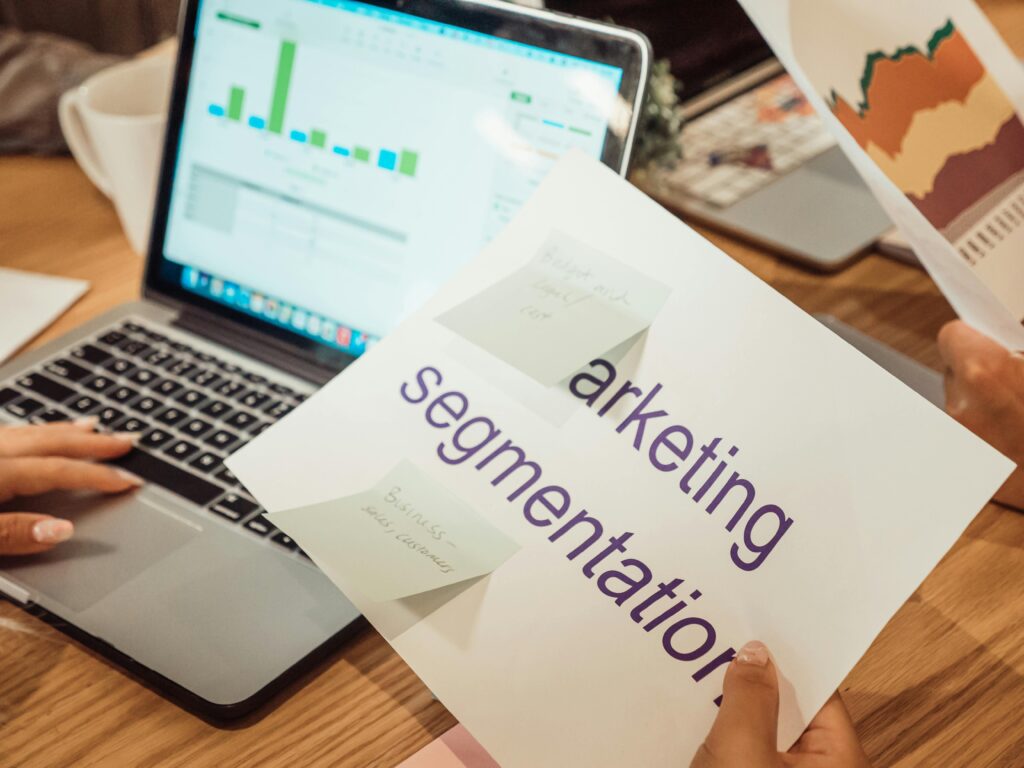Artificial Intelligence (AI) is the field of computer science focused on creating systems or machines that can perfom tasks typically requiring human intelligence. Artificial Intelligence (AI) is no longer a buzzword or a futuristic concept; it is a marketing powerhouse that businesses around the world are using to gain a competitive edge. According to McKinsey, over 80% of marketing executives believe AI is revolutionizing the industry. But how exactly does AI help in marketing? In this post, we explore the real-world impact of AI, from personalization to predictive analytics, and how your business can harness this technology to grow in 2025 and beyond.
Personalized Marketing at Scale
AI enables businesses to offer tailored marketing experiences to customers at scale. By analyzing data such as browsing history, purchase behavior, and demographic information, AI can help deliver hyper-personalized recommendations, emails, and ads.
Example: Platforms like Netflix and Amazon use AI to suggest shows or products you’re likely to enjoy, improving engagement and increasing conversions.
Impact: Increased customer satisfaction, higher engagement rates, and improved sales.
Trusted Source: McKinsey & Company
Predictive Analytics and Customer Behavior Forecasting

AI excels at recognizing patterns in vast datasets. This allows marketers to predict customer behavior, such as when a lead is likely to convert or a customer may churn.
Use Case: E-commerce platforms use predictive analytics to identify high-intent customers and trigger retargeting ads or email campaigns tailored to their journey.
Impact: Better marketing decisions, improved ROI, and reduced customer acquisition costs.
Trusted Source: Salesforce: Predictive Marketing
Content Creation and Optimization
AI-powered writing tools like ChatGPT, Jasper, and Copy.ai can generate high-quality content in seconds, saving marketers time and resources.
Bonus: AI also helps with content optimization by analyzing competitors, suggesting keywords, and improving structure and readability.Popular Tools: Surfer SEO, MarketMuse
Impact: Faster content production, improved SEO rankings, and more engaging copy.
AI-Powered Chatbots and Customer Support

AI chatbots provide instant, 24/7 customer service across websites, social media, and messaging platforms. They can answer FAQs, qualify leads, and even guide users through purchasing processes.
Stat: Gartner predicts that by 2025, AI will power 95% of customer interactions.
Tool Examples: Drift, Intercom, ManyChat
Impact: Reduced support costs, faster response times, and improved user satisfaction.
Trusted Source: Gartner: Top Strategic Predictions for 2023 and Beyond
Marketing Automation and Campaign Management
AI automates repetitive tasks like sending emails, posting on social media, and even managing ad campaigns. Tools like Facebook’s Advantage+ automate ad delivery based on performance data.
Source: Meta Advantage+ Overview
Impact: Increased efficiency, reduced human error, and scalable marketing execution.
Dynamic Pricing and Customer Segmentation

AI algorithms analyze demand, competitor pricing, and customer profiles to optimize pricing in real-time. AI also enables deep customer segmentation based on behavior, preferences, and purchasing power.
Use Case: Airlines and retail e-commerce platforms dynamically adjust pricing to maximize profits during peak and low demand periods.
Impact: Higher revenue margins and better-targeted marketing messages.
Trusted Source: Harvard Business Review on Dynamic Pricing
Real-Time Performance Tracking and Insights
AI-powered dashboards crunch thousands of data points in seconds to offer actionable insights. Tools like Google Analytics 4 use machine learning to predict outcomes and recommend next steps.
Impact: Better decision-making, more efficient ad spend, and continuous campaign optimization.
Trusted Source: Google Analytics 4
Is AI the Future of Marketing?
Absolutely. But while AI offers powerful tools for automation and analytics, it cannot replace the strategic thinking and creative storytelling that human marketers bring. The key is to let AI handle the heavy lifting while marketers focus on building emotional connections and long-term brand value.
Conclusion
AI in marketing isn’t just for large corporations — even small businesses and solopreneurs can access affordable AI tools today. From personalized content to intelligent automation, AI helps marketers work smarter, not harder.
Frequently Asked Questions (FAQ)
1. What is AI marketing?
AI marketing involves using artificial intelligence technologies to automate data analysis, customer targeting, content creation, and campaign optimization.
2. Can small businesses use AI in marketing?
Yes, many affordable tools like ChatGPT, Surfer SEO, and Canva AI help small businesses improve efficiency and scale their marketing efforts.
3. Is AI marketing expensive?
Not necessarily. While enterprise-level solutions exist, there are also budget-friendly tools that provide significant ROI for smaller businesses.
4. What are the best AI tools for marketers?
Popular tools include Jasper for content writing, Surfer SEO for optimization, Google Analytics for insights, and ManyChat for chat automation.
5. How does AI improve customer targeting?
AI analyzes behavioral and demographic data to create more accurate customer segments and personalize marketing messages effectively.
6. Can AI replace human marketers?
No. AI is a tool to enhance marketing, not replace human creativity, emotional intelligence, and strategic planning.
7. Is AI ethical in marketing?
AI should be used transparently and responsibly, respecting user privacy and data protection laws like GDPR.
8. How can AI help with content marketing?
AI tools generate ideas, suggest headlines, optimize SEO, and even write initial drafts of blog posts and social media captions.
9. What’s the future of AI in marketing?
Expect greater personalization, real-time decision-making, and seamless integration across all marketing platforms.
10. Where can I learn more about AI marketing?
Check out resources from HubSpot, Neil Patel, and Forbes.




